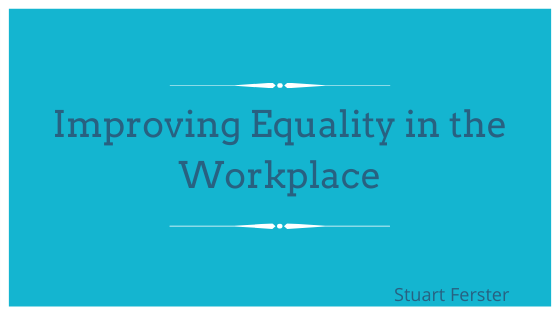A diverse workplace comes with all sorts of benefits, including more innovation and higher productivity. However, gender equality can often feel a little easier said than done. Though many workplaces believe they do not discriminate, unconscious biases can still lead to gender inequality. Here are some tips for creating an equal opportunity workplace.
Improve Work-Life Balance
A major struggle for working women is that they are still left to handle most childcare and household chores. Even in households where men perceive the labor division as equal, studies have shown that women are always doing more unpaid labor like laundry, running errands, and cooking. This leads to a gender gap where men have plenty of time for extra work. Companies that provide a better work-life balance ensure that their female team members are supported, and it improves worker positivity among all genders.
Create an Official Mentorship Program
Many men are wary of mentoring or interacting with younger women due to concerns about harassment. At the same time, there usually are not enough female leaders to mentor all the young women in the workplace. An official mentorship program can ensure all younger staff get the same mentorship opportunities. By matching junior employees with senior employees, businesses can provide a safe opportunity for younger employees to learn about the business.
Enforce Clear Sexual Harassment Guidelines
Women in multiple industries agree that sexual harassment is a huge roadblock to their success. One in four women have been harassed at work, and often, when they try to report it, they get penalized for being “difficult” or “overly sensitive.” Workplaces need to take a proactive approach to harassment, set firm rules about what harassment is, and address it as soon as it happens.
Rethink Experience Requirements for Senior Management
A big reason men continue to have the majority of senior management positions is that 20 to 30 years ago, gender discrimination was even worse. When CEO and manager positions want decades of experience, women often find it impossible to fulfill these requirements. Companies that pay more attention to accomplishments than years of experience find it easier to get qualified women as leaders.

